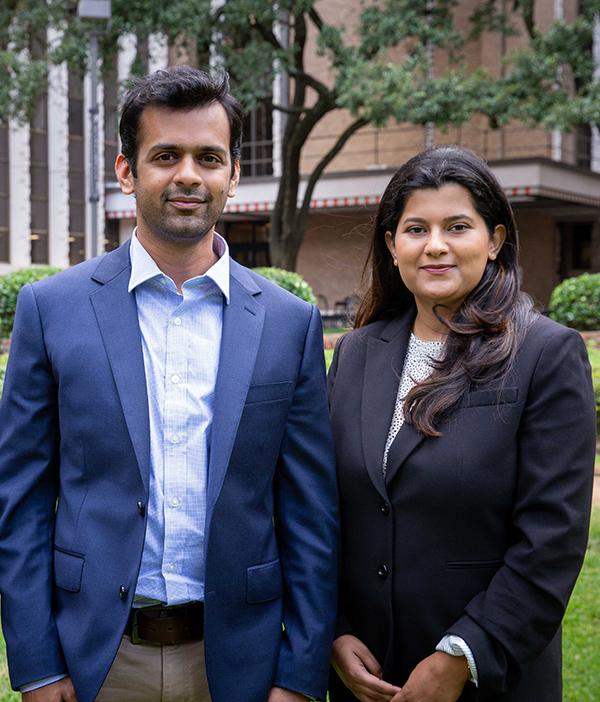
Credit: Photo by Maricruz Kwon/UTHealth
A new study revealed that one dose of the HPV vaccine may prevent infection from the potential cancer-causing virus, according to research published in JAMA Network Open from The University of Texas Health Science Center at Houston (UTHealth).
According to the Centers for Disease Control (CDC), 34,800 new cancer diagnoses are linked to human papillomavirus (HPV) annually. The virus is thought to account for more than 90% of all cervical and anal cancers, more than 60% of all penile cancers, and approximately 70% of all oral cancers.
While results of the paper showed that a single dose may be as effective as the currently recommended two- or three-dose series, it’s too early for people to rely on a single dose of the vaccine for protection, according to senior author Ashish A. Deshmukh, PhD, MPH, an assistant professor at UTHealth School of Public Health.
“HPV vaccine coverage is less than 10% globally because of poor vaccine uptake rates in many resource-limited countries. Ensuring boys and girls receive their first dose is a big challenge in several countries and a majority of adolescents are not able to complete the recommended series due to a lack of intensive infrastructure needed to administer two or three doses,” Deshmukh said. “If ongoing clinical trials provide evidence regarding sustained benefits of a one-dose regimen, then implications of single-dose strategy could be substantial for reducing the burden of these cancers globally.”
Although the study participants included only women, the CDC recommends a two-dose regimen for all children starting the series before age 15 or a three-dose regimen if the series is started between ages 16 to 26. The latest generation of HPV vaccine can protect against nearly 90% of cancer-causing HPV infections. Yet, current vaccinations rates are less than ideal – half of people in the U.S. are not vaccinated against this common sexually transmitted infection.
“The current HPV vaccine dosing regimen can be cumbersome for people to understand. If one dose is proven effective in trials, the vaccine regimen will be simplified. This will help improve the coverage rate among adolescents that are currently below the Healthy People 2020 goal and possibly will also increase the momentum of uptake in the newly approved age group,” said lead author Kalyani Sonawane, PhD, who is an assistant professor at UTHealth School of Public Health.
###
Michael D. Swartz, PhD, of UTHealth co-authored the study, along with Alan G. Nyitray, PhD, of the Medical College of Wisconsin; and Gizem S. Nemutlu, PhD, and Jagpreet Chhatwal, PhD, from Harvard Medical School.
Research was supported by the National Cancer Institute of the National Institutes of Health (R01CA232888). The content is solely the responsibility of the authors and does not necessarily represent the official views of the NIH.
Media Contact
Wendi Hawthorne
[email protected]
713-500-3030
Related Journal Article
http://dx.




